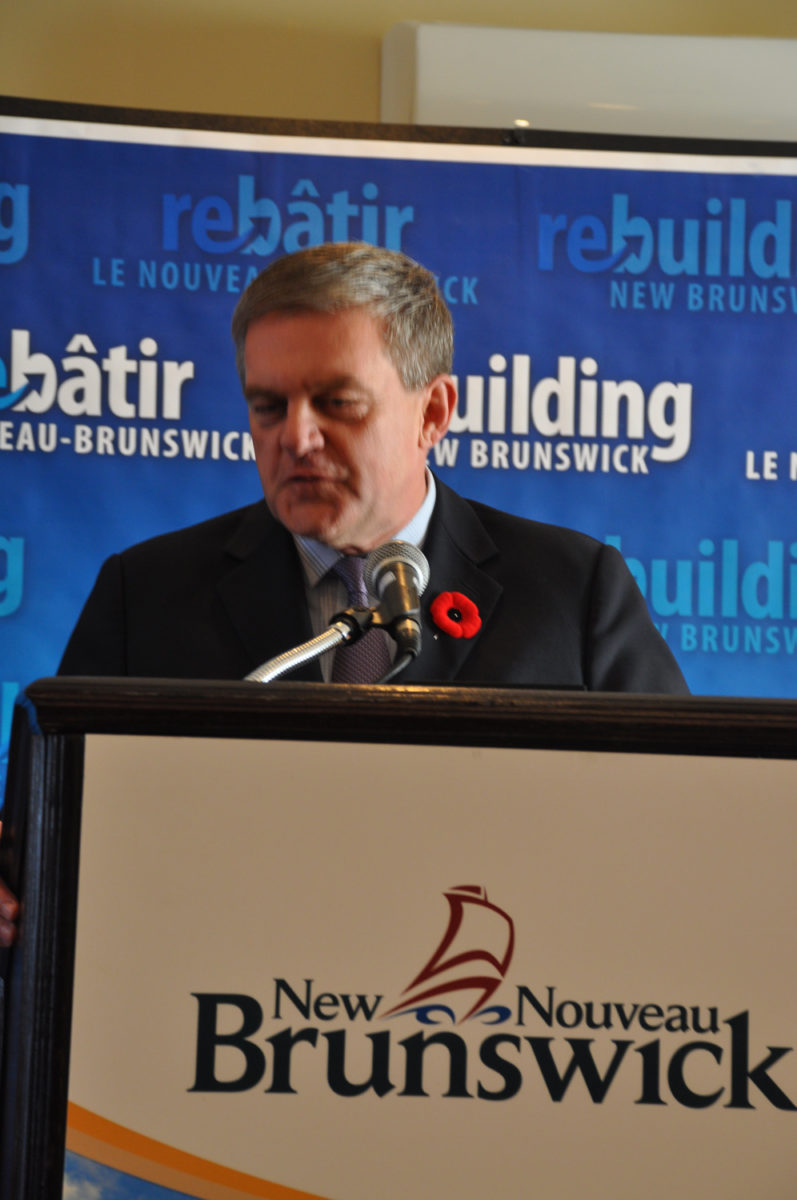
The provincial government made an announcement last week to help predict university funding and make tuition more stable across the province.
University operating budgets are increasing by two per cent for the next two years and, starting next year, the tuition cap will be no more than three per cent for three years.
St. Thomas is the exception to the cap. After discussions with the university that resulted in an increased grant and a $184 tuition rebate for students, there was an agreement made that ensured tuition will be increased by no more than three per cent of other universities as well as an adjustment of $170 per year for four years. This is to help bring STU’s tuition closer to the provincial average.
“Adopting a tuition policy means institutions and students can plan their respective budgets and investments,” Premier David Alward said at the announcement. “Public universities are critical to the socio-economic well-being of our province representing key investments in our people, our economy and the future of our province.”
The provincial government promised predictable and sustainable tuition when they took office in 2010. Alward said this decision hasn’t always been easy and it has been a process to get this arrangement settled.
“We made that commitment because it will provide for greater stability. It will provide for better clarity for both the university and students as well, and better planning as both go forward long-term. So, we’ve worked to collaborate with the students over the last three years to be able to get here,” said Alward.
This policy doesn’t prevent tuition from going up, but it tells students how much they should expect to pay from year to year. STUSU president Elizabeth Murphy said this is an improvement.
“The thing is, if there’s a limit on how much universities are allowed to set their tuition, if there’s a cap, then there’s got to be the funding to support that,” said Murphy. “As we saw at STU this year, it doesn’t work when freezes aren’t funded or when funding doesn’t increase or increase by a substantial amount.”
STU president Dawn Russell said there are still issues with tuition, but she’s pleased with the announcement, especially considering the financial state of the province.
“That’s progress [and] recognition of the need to increase tuition and to bring it closer to the provincial average,” said Russell. “And then to have, in a fiscal period, that’s very difficult for the province and with many programs and services being cut, to have any increase of funding in the university system is very positive news for us.”
Post-secondary education minister Jody Carr was also at the announcement last week. He hopes to be able to announce a new financial assistance program for students soon.
“We’ve been looking to revise student financial assistance and it’s a key pillar to our plans for post-secondary to have sustainable, predictable funding for universities, to have stable tuition funding levels and then to also have affordability and access for students,” said Carr.
Carr said they are looking at parental contribution as a part of the review on the financial assistance program.
Murphy said she hopes students are included in those discussions.
“We do support the elimination of parental contribution,” said Murphy. “However, we are open to conversations about it, to look at other ways [like] an option to indicate parental contribution if parents are willing to contribute financially to their son or daughter’s education.”